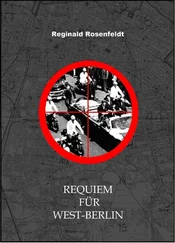Isaiah Berlin - Russian Thinkers
Здесь есть возможность читать онлайн «Isaiah Berlin - Russian Thinkers» весь текст электронной книги совершенно бесплатно (целиком полную версию без сокращений). В некоторых случаях можно слушать аудио, скачать через торрент в формате fb2 и присутствует краткое содержание. Год выпуска: 0101, Жанр: Старинная литература, на русском языке. Описание произведения, (предисловие) а так же отзывы посетителей доступны на портале библиотеки ЛибКат.
- Название:Russian Thinkers
- Автор:
- Жанр:
- Год:0101
- ISBN:нет данных
- Рейтинг книги:3 / 5. Голосов: 1
-
Избранное:Добавить в избранное
- Отзывы:
-
Ваша оценка:
- 60
- 1
- 2
- 3
- 4
- 5
Russian Thinkers: краткое содержание, описание и аннотация
Предлагаем к чтению аннотацию, описание, краткое содержание или предисловие (зависит от того, что написал сам автор книги «Russian Thinkers»). Если вы не нашли необходимую информацию о книге — напишите в комментариях, мы постараемся отыскать её.
Russian Thinkers — читать онлайн бесплатно полную книгу (весь текст) целиком
Ниже представлен текст книги, разбитый по страницам. Система сохранения места последней прочитанной страницы, позволяет с удобством читать онлайн бесплатно книгу «Russian Thinkers», без необходимости каждый раз заново искать на чём Вы остановились. Поставьте закладку, и сможете в любой момент перейти на страницу, на которой закончили чтение.
Интервал:
Закладка:
to which the Emperor had at one time given much sympathetic
consideration, were abruptly dropped. For many years it had been a
commonplace, and not in liberal circles alone, that agricultural slavery
was an economic as well as a social evil. Count Kiselev, whom
Nicholas trusted and had invited to be his 'Agrarian Chief of Staff',
held this view strongly, and even the landowners and the reactionary
bureaucrats who did their best to put difficulties in the pa.th of positive
reform had not, for some years, thought it profitable to question the
evil of the system itself. Now, however, the lead given by Gogo! in his
unfortunate Selected Extracts from a Correspondence with Friends was
followed in one or two government-approved school textbooks which
went further than the most extreme Slavophils, and began to represent
serfdom as divinely sanctioned, and resting on the same unshkeable
foundation as other patriarchal Russian institutions-as sacred in its
own way as the divine right of the Tsar himself. Projected reforms of
local government were likewise discontinued. The 'hydra of revolution' was threatening the Empire, and internal enemies, as so often I I
R U SS IAN T H I N K E R S
in the history of Russia, were therefore to be handled with exemplary
severity. The first step taken was connected with censorship.
The steady stream of secret denunciation which issued from
Bulgarin and Grech at last had its effect. Baron Korf and Prince
Menshikov almost simultaneously, it appears, compiled memoranda
giving instances of the laxity of the censorship and the dangerous
liberal tone to be found in the periodical press. The Emperor declared
himself shocked and indignant that this had not been detected earlier.
A committee under Menshikov was immediately set up with instructions to look into the activities of the censors and tighten up existing regulations. This committee summoned the editors of SfJ'IJT"tmmnik
and of Otechesroennye zapisn and reproved them strongly for 'general
unsoundness'. The latter changed its tone, and its editor-publisher
Kraevsky produced in 1 849 a him pmstmt article denouncing western
Europe and all its works, and offering the government a degree of
sycophantic adulation at that time unknown even in Russia, and
scarcely to be found in Bulgarin's subservient St'Utrnaya pchela (Tht
Northern Btt). As for SD'UT"tmmnilt, its most effective contributor
Belinsky, whom nothing could corrupt or silence, had died early in
1 848.1 Henen and Bakunin were in Paris, Granovsky was too mild
and too unhappy to protest. Of major literary figures in Russia
Nekrasov was left almost alone to continue the fight; by displaying
his extraordinary agility and skill in dealing with officials, and by
lying low for a good many months, he managed to survive and even
publish, and so formed the living link between the proscribed radicals
of the 405 and the new and more fanatical generation, tried and
hardened by persecution, which carried on the struggle in the sos and
6os. The Menshikov Committee was duly superseded by a secret
committee (the Emperor was in the habit of submitting critical issues
to secret committees, which often worked at cross-purposes in ignor-
1 There is a story still to be found in the latest Soviet lives of the great
critic that at the time of his death a warrant had gone out for his arrest, and
it is true that Du belt later said that he regretted his death, as otherwise 'we
would have rotted him in a fortress' (M. K. Lemke, NiltolllffJsltit zho11tiormy
i liltroturo s826-s855 gotiw, 2nd ed. [St Petersburg, 1909], p. 190). But
Lemke has conclusively shown that no such warrant had ever been signed and
that the invitation to Belinsky to visit Dubelt, which had largely inspired the
story, was due mainly to a desire of the Third Department to get a specimen
of his handwriting in order to compare it with
letter circulating at the time (ibid., pp. 1 87-90).
1 2.
R U S S I A AND 1 84 8
ance of each other's existence) headed by Buturlin, and later by
Annenkov-commonly known as the 'Second of April Committee'.
Its duty was not that of pre-<:ensorship (which continued to be performed by censors under the direction of the Ministry of Education) but of scrutinising matter already published, with instructions to report
any trace of'unsoundness' to the Emperor himself, who undertook to
execute the necessary punitive measures. This committee was linked
with the political police through the ubiquitous Dubelt. It worked
with blind and relentless zeal, ignoring all other departn:ents and
institutions, and at one point, in an excess of enthusiasm, actually
denounced a satirical poem approved by the Tsar himself.1 By going
with a fine comb through every word published in the none too
numerous periodical press, it succeeded in virtually stiBing all forms of
political and social criticism- indeed everything but the conventional
expressions of unlimited loyalty to the autocracy and the Orthodox
Church. This proved too much even for Uvarov, and, on the plea of
ill-health, he resigned from the Ministry of Education. His successor
was an obscure nobleman- Prince Shirinsky-Shikhmatov,8 who had
submitted a memorandum to the Tsar, pointing out that one of the
mainsprings of disaffection was undoubtedly the freedom of philosophical speculation permitted in the Russian universities. The Emperor accepted this thesis and appointed him to his post with
express instructions to reform university teaching by introducing
stricter observance of the precepts of the Orthodox faith, and in
particular by the elimination of philosophical or other dangerous
leanings. This medieval mandate was carried out in the spirit and
the letter and led to a 'purge' of education which exceeded even the
notorious 'purification' of the University of Kazan ten years earlier
by Magnitsky. 1 848 to 1 855 is the darkest hour in the night of
Russian obscurantism in the nineteenth century. Even the craven and
sycophantic Grech, torn by anxiety to please the authorities,
whose letters from Paris in 1 848 denounce the mildest liberal measures
of the Second Republic with a degree of scorn hardly equalled by
Benkendorf himself-even this poor creature in his autobiographfl
written in the sos complains with something approaching bitter-
1 Shilder, op. cit. (p. 9, note 1 above).
• 'Shikhmatov is Shakhmat [checkmate) to all education' was a popuJar
pun in St Petenburg.
• N. I. Grech, Ztlpisli o moti zhizni (Moscow, 1930).
1 3

R U S S I AN T H I N K E R S
ness about the stupidities of the new double censorship. Perhaps
the most vivid description of this literary 'White Terror' is the
well-known passage in the memoirs of the populist writer Gleb
Uspensky.1
One could not move, one could not even dream; it was dangerous
to give any sign of thought-of the fact that you were' not afraid; on
the contrary, you were required to show that you were scared,
trembling, even when there was no real ground for it-that is what
those years have created in the Russian masses. Perpetual fear . . .
was then in the air, and crushed the public consciousness and robbed
it of all desire or capacity for thought • . . There was not a single
point oflight on the horizon- 'You are lost,' cried heaven and earth,
air and water, man and beast-and everything shuddered and fled
Читать дальшеИнтервал:
Закладка:
Похожие книги на «Russian Thinkers»
Представляем Вашему вниманию похожие книги на «Russian Thinkers» списком для выбора. Мы отобрали схожую по названию и смыслу литературу в надежде предоставить читателям больше вариантов отыскать новые, интересные, ещё непрочитанные произведения.
Обсуждение, отзывы о книге «Russian Thinkers» и просто собственные мнения читателей. Оставьте ваши комментарии, напишите, что Вы думаете о произведении, его смысле или главных героях. Укажите что конкретно понравилось, а что нет, и почему Вы так считаете.










